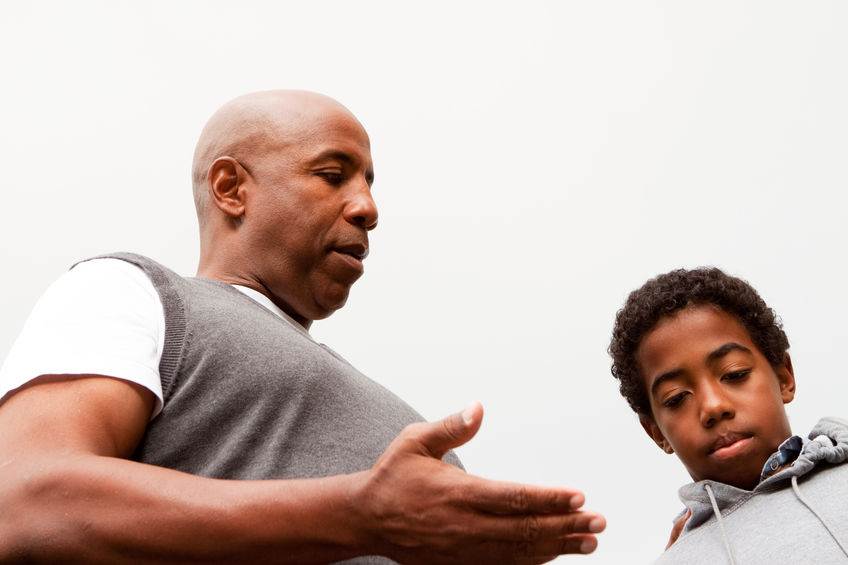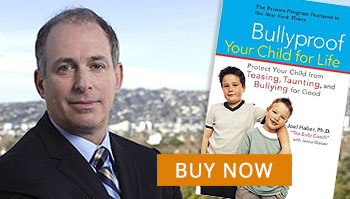 Copyright: DigitalSkill/123RF Stock Photo
Copyright: DigitalSkill/123RF Stock Photo
Role-playing about bullying is important to help her rehearse what to say and do when bullying does occur.
Forget about insulting or threatening the bully.
Forget about telling your child to “just ignore it.”
Cute” and snappy comebacks are tough to pull off, but possible if your child feels comfortable with this strategy.
These examples are high-risk and likely to make your child look too affected by the bully’s words or actions. Even “ignoring it” usually is a reaction. When a child is clearly pretending not to hear or see, it’s a fun challenge for the bully to get louder and more abusive. It’s funny to the bully that she’s gotten to the target enough that she feels she has to pretend not to hear. And more often than not, the child is not a very good ignorer.
There is usually plenty of body language to tell the bully that bad behavior is working.
What’s important is to instill a sense in the child that the bullying child’s remarks and behaviors honestly don’t matter . . . therefore, you don’t need to pretend not to see or hear, you don’t need to argue or cry; you can just give a little grin and reply, “Say whatever you like” and leave it at that, or even—gasp!—agree with the bully if the teasing isn’t too bad. Think of how many comedians America loves who rely on self-deprecating humor.
Jay Leno doesn’t get offended when people tell him he has a big chin. He agrees with them and even exaggerates it to make jokes about himself.
Rodney Dangerfield made a career of insulting himself—probably playing off the comments children once made about him. If your child is going to confront the bully, whatever your child chooses to say must be said as unemotionally as possible.
Bullies absolutely love it when a child is frothing at the mouth, panting, crying, yelling, stomping away . . . that virtually ensures that the harassment will continue.
Practice the tone of voice with your child. If your child has a favorite “cool” celebrity, it might help to pretend to be that celebrity when delivering the lines. Work with your child on portraying confidence—standing straight, looking people in the eye, speaking calmly, and firmly.
Here are some acceptable lines your child might use, depending on his level of comfort and resilience:
- Say whatever you like about me.
- Maybe you’re right.
- Okay, whatever you say.
- Thanks!
If your child feels a little stronger and can use body language to stand up straight to bullies and look them in the eye, more assertive responses are possible:
- That’s enough.
- I’m not interested in fighting.
- Please stop now.
- This isn’t funny to me.
- Knock it off.
Tell your child not to use these words which convey too much emotion or are too threatening and will probably produce the opposite of the desired result:
- Shut up.
- You’re stupid.
- You’re a jerk.
- That’s not true!
- Am not.
- I’m telling.
- My big brother/father/neighbor/friend could beat you up.
- Liar!
- Get away from me.
- I hate you.
Don’t Get Touchy-Feely When Role-Playing About Bullying
Sensitive kids expect other kids to be sensitive. When they’re not, often the sensitive kid wants to tell the bully how she feels, particularly when they’re young and the bullying is verbal. (“You hurt my feelings.” “I don’t like it when you say that!” “Stop, you’re making me upset.”) Some parents encourage this, too, believing that if the bully just understood that the words or behaviors were hurtful, they’d stop.
This is wishful thinking and works only when you’re not dealing with a true bully.
True bullies don’t have empathy—at least not for your child. They do not care that they’ve hurt your child’s feelings . . . in fact, that’s exactly what they want. So if your child expresses that his feelings are hurt, it’s just as good as your child saying, “Way to go! You’re accomplishing your goal. Please, keep it up! I might fall apart any second! Get popcorn!”
It’s extremely hard for good people to believe that anyone could be so cruel at heart, especially children. We want to believe just talking to them and helping them understand the effects of their behavior can turn them all around. Some of them can and will learn empathy, sure. Others never will. But your child isn’t there to be a teaching tool after the first time if he continues to be upset by bullying behavior.
This advice does not apply if your child is normally friends with the person who is now doing the bullying (or was once friends with the person): In that case, it may be that the friendship can be repaired and the bullying behaviors can stop if the children sit down and talk to each other about what’s going on. But if you’re dealing with a child who is a stranger to you, or someone who’s never been nice to your child in the past, it’s probably best that your child does not purposely let this bully know that her feelings are hurt.
